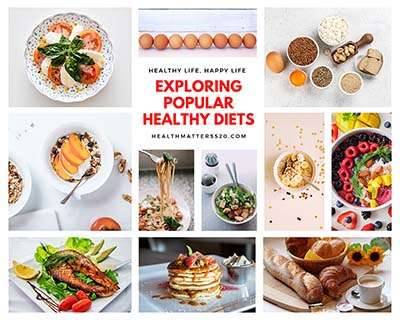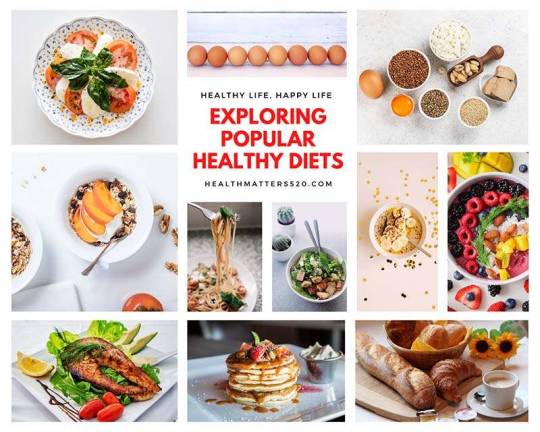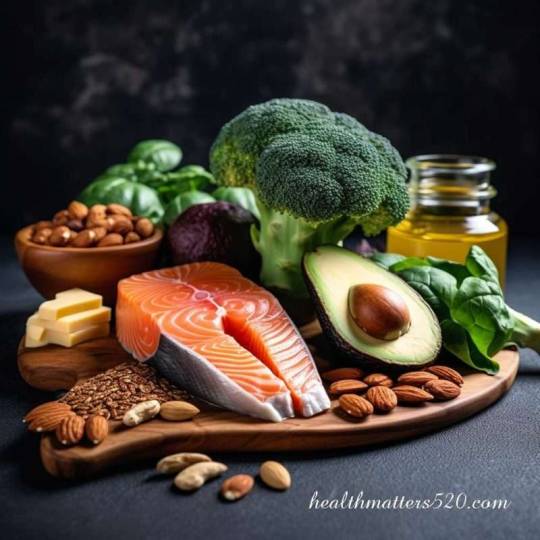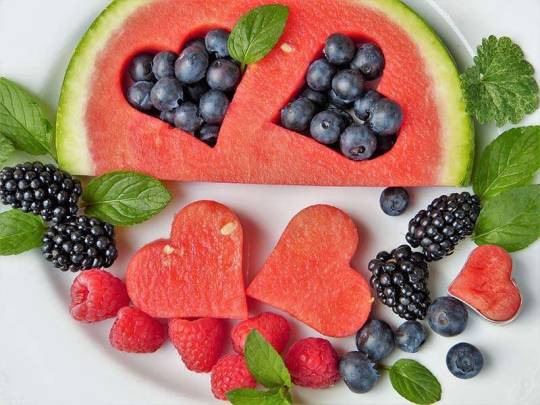#dashdiet
Text
Smart Weight Loss: Unlock the Secrets of DASH, Fasting, and Keto
If you're looking for effective ways to lose weight and embrace a healthier lifestyle, diets like DASH, Intermittent Fasting, and Keto might be the perfect solutions for you. Each of these approaches offers unique strategies scientifically proven to improve overall health and accelerate fat loss. In this article, we'll explore the secrets and benefits of these three diets and how you can choose the right one to achieve stunning results on your weight loss journey.
1. DASH Diet:
Overview: The DASH diet (Dietary Approaches to Stop Hypertension) is a nutritional plan specifically developed to combat high blood pressure and promote heart health. It focuses on consuming natural foods rich in potassium, calcium, and magnesium while reducing sodium intake. The diet includes a variety of fruits, vegetables, whole grains, and lean proteins.
How it works: The DASH diet works by reducing sodium and increasing the intake of foods rich in essential nutrients. This helps lower blood pressure and improves overall heart health.
Recommended Foods:
Fruits and Vegetables: Apples, oranges, spinach, broccoli.
Whole Grains: Brown rice, oats, quinoa.
Lean Proteins: Skinless chicken, fish, lean red meat.
Healthy Fats: Nuts, seeds, avocados.
Low-fat Dairy: Low-fat milk, yogurt, cheese.
Foods to Avoid:
High-sodium Foods: Processed foods, fast food.
Saturated and Trans Fats: Butter, fatty meats.
Added Sugars: Sweets, sodas.
Practical Tips:
Start Gradually: Reduce sodium intake slowly instead of cutting it off abruptly.
Meal Planning: Prepare weekly meal plans that include a variety of permitted foods.
Use Spices: Enhance flavor without adding sodium by using herbs and spices.
Stay Hydrated: Ensure you drink enough water throughout the day.
2. Intermittent Fasting:
Overview: Intermittent fasting is an eating pattern based on alternating periods of eating and fasting. It includes various methods, such as the 16/8 method (16 hours of fasting and 8 hours of eating). The goal is to improve metabolism and enhance weight loss.
How it works: Intermittent fasting works by reducing overall calorie intake, which improves insulin sensitivity and fat burning. During fasting periods, growth hormone levels rise, and cellular repair processes begin.
Recommended Foods During Eating Window:
Healthy Proteins: Chicken, fish, eggs.
Vegetables: Broccoli, spinach, lettuce.
Healthy Carbs: Sweet potatoes, quinoa, brown rice.
Healthy Fats: Avocados, olive oil, nuts.
Zero-Calorie Drinks: Black coffee, green tea.
Foods to Avoid:
Refined Sugars: Sweets, sodas.
Fried Foods: Fast food.
Processed Foods: Snacks, canned goods.
Practical Tips:
Set a Eating Window: Choose time frames that suit your lifestyle.
Eat Nutrient-dense Meals: Focus on consuming foods rich in protein and fiber.
Stay Hydrated: Drink water, tea, or coffee (without sugar) during fasting periods.
Listen to Your Body: If you feel excessively hungry, consider reducing fasting hours.
3. Keto Diet:
Overview: The ketogenic diet (keto) is a low-carb, high-fat eating plan aimed at inducing a state of "ketosis," where the body uses fat as its primary energy source instead of carbohydrates. Keto is known for its substantial fat-burning benefits and rapid weight loss.
How it works: When carbohydrates are significantly reduced, and fats are increased, the body starts producing ketones from fat, providing efficient energy for the brain and body. This leads to continuous fat burning.
Recommended Foods:
Healthy Fats: Avocados, coconut oil, peanut butter.
High-fat Proteins: Fatty meats (beef, lamb), oily fish (salmon, mackerel).
Non-starchy Vegetables: Broccoli, zucchini, spinach.
Cheese: Cheddar, mozzarella.
Eggs: One of the most ideal foods in the keto diet.
Foods to Avoid:
High-carbohydrate Foods: Bread, rice, pasta.
Sugars and Sweets: Including high-sugar fruits like bananas and grapes.
Starchy Foods: Potatoes, sweet potatoes.
Legumes: Beans, lentils.
Practical Tips:
Start Slowly: Gradually reduce carbohydrates to avoid the "keto flu."
Focus on Healthy Fats: Prioritize sources of healthy fats.
Monitor Ketones: Use ketone testing strips to track ketosis levels.
Diversify Foods: Try new recipes to avoid boredom.
Conclusion:
These dietary plans offer a variety of options that support health and weight loss. By following the practical tips and understanding how each diet works, you can take effective steps toward achieving your health goals.
0 notes
Text
youtube
#dashdietreview#dashdiet#dashdietmealplan#dashdietreviews#dashdietrecipes#dashdietmeaning#dashdietplan#dashdietforweightloss#weightlossdiet#dietplan#diet#lowcarbdiet#dashdietforhypertension#dashdietweightloss#whatisdashdiet#dashdiethypertension#dashdietfoods#thedashdietplan#dashdiettoloseweight#dashweightloss#dashdietweightlosssolution#dashdietchart#dashdietwhatnotttoeat#bestdietplan#bestdiettolosefat#bestdietforweightloss#bestdietforhumanbody#bestdietforhumans#healthydiet#bestdiettolosebellyfat
0 notes
Text
youtube
#dashdietreview#dashdiet#dashdietmealplan#dashdietreviews#dashdietrecipes#dashdietmeaning#dashdietplan#dashdietforweightloss#weightlossdiet#dietplan#diet#lowcarbdiet#dashdietforhypertension#dashdietweightloss#whatisdashdiet#dashdiethypertension#dashdietfoods#thedashdietplan#dashdiettoloseweight#dashweightloss#dashdietweightlosssolution#dashdietchart#dashdietwhatnotttoeat#bestdietplan#bestdiettolosefat#bestdietforweightloss#bestdietforhumanbody#bestdietforhumans#healthydiet#bestdiettolosebellyfat
0 notes
Text
youtube
#dashdietreview#dashdiet#dashdietmealplan#dashdietreviews#dashdietrecipes#dashdietmeaning#dashdietplan#dashdietforweightloss#weightlossdiet#dietplan#diet#lowcarbdiet#dashdietforhypertension#dashdietweightloss#whatisdashdiet#dashdiethypertension#dashdietfoods#thedashdietplan#dashdiettoloseweight#dashweightloss#dashdietweightlosssolution#dashdietchart#dashdietwhatnotttoeat#bestdietplan#bestdiettolosefat#bestdietforweightloss#bestdietforhumanbody#bestdietforhumans#healthydiet#bestdiettolosebellyfat
0 notes
Link
#balancedeatingplan#BloodPressure#Cholesterol#DASHdiet#Diet#DietaryApproachestoStopHypertension#HeartHealth#Lowerrisksofcancer#Osteoporosis#StopHypertension#Weightloss#Whatare5advantagesoftheDASHdiet?#WhatisinaDASHdiet?
0 notes
Photo

(via Roasted Butternut and Cauliflower Soup)
0 notes
Text
Popular Health Related Diets: An Overview of Characteristics, Benefits, and More

Greetings, health-conscious readers! Welcome to an enlightening journey into the world of popular diets. In this blog post, we will delve into the significance of diet in relation to our overall health and well-being. As the saying goes, "You are what you eat," and it holds true that the food we consume plays a crucial role in shaping our physical and mental health.
A balanced and nutritious diet is the foundation of a healthy lifestyle. The food we consume serves as fuel for our bodies, providing essential nutrients, vitamins, and minerals that support vital functions. Moreover, the right dietary choices can help prevent chronic diseases, maintain a healthy weight, boost energy levels, and promote overall well-being.
Throughout this blog post, we will explore a diverse range of popular diets, including the Mediterranean diet, Keto diet, Paleo diet, Vegan diet, Vegetarian diet, Atkins diet, DASH diet, Flexitarian diet, Dukan diet, Brat diet, South Beach diet, GOLO diet, Anti-Inflammatory diet, Low FODMAP diet, Carnivore diet, and even the Brazilian diet.
By examining the characteristics, benefits, and considerations of each diet, you will gain valuable insights into their potential impact on your health and lifestyle. However, it's important to remember that individual needs and preferences vary. It is always advisable to consult with a healthcare professional or registered dietitian before embarking on any new dietary regimen.
So, without further ado, let's embark on this enlightening journey through the fascinating world of popular diets. Discover the diverse approaches to nutrition and find the one that resonates with your unique needs and aspirations. Together, let's unlock the power of food and nourish our bodies for a healthier and more fulfilling life.

Mediterranean Diet
The Mediterranean diet is renowned for its emphasis on wholesome, plant-based foods, healthy fats, and moderate consumption of lean proteins. Drawing inspiration from the traditional eating patterns of countries bordering the Mediterranean Sea, this diet has gained recognition for its numerous health benefits.
At the core of the Mediterranean diet are plant-based foods, including fruits, vegetables, whole grains, legumes, nuts, and seeds. These nutrient-rich foods provide a wide array of vitamins, minerals, and antioxidants that support overall health and well-being. Additionally, the Mediterranean diet encourages the consumption of healthy fats, primarily from olive oil and fatty fish, which are rich in omega-3 fatty acids.

Benefits
One of the key benefits of the Mediterranean diet is its positive impact on cardiovascular health1. Numerous studies have shown that following this dietary pattern can reduce the risk of heart disease, lower cholesterol levels, and improve blood pressure control. The abundance of fruits, vegetables, whole grains, and healthy fats in the Mediterranean diet contributes to these heart-protective effects.
Moreover, the Mediterranean diet is associated with increased longevity2 and a reduced risk of chronic diseases. The consumption of antioxidant-rich foods, such as colorful fruits and vegetables, along with the anti-inflammatory properties of the diet, may help combat oxidative stress and inflammation in the body. This, in turn, can help protect against conditions like diabetes, certain cancers, and neurodegenerative diseases.
Incorporating the Mediterranean diet into your daily life can be both enjoyable and fulfilling. Here are some sample meal ideas to inspire you:
- Breakfast: Start your day with a Greek yogurt topped with fresh berries, a sprinkle of nuts, and a drizzle of honey. Enjoy it with a side of whole grain toast.
- Lunch: Prepare a colorful salad with mixed greens, cherry tomatoes, cucumbers, olives, feta cheese, and a lemon-olive oil dressing. Pair it with a serving of grilled chicken or chickpeas.
- Dinner: Savor a Mediterranean-style grilled fish, such as salmon or sardines, seasoned with herbs and lemon. Serve it alongside a generous portion of roasted vegetables and a side of whole grain couscous or quinoa.
- Snacks: Opt for a handful of almonds or walnuts, fresh fruit, or vegetable sticks with hummus as healthy and satisfying snack choices.
Incorporating the Mediterranean diet into your daily life can be as simple as:
- Prioritizing plant-based foods in your meals, aiming for a variety of colorful fruits and vegetables.
- Using extra virgin olive oil as your primary source of fat for cooking and dressing.
- Including whole grains, such as brown rice, quinoa, and whole wheat bread, in your diet.
- Consuming moderate amounts of lean proteins, such as fish, poultry, and legumes.
- Limiting the consumption of red meat and processed foods.
- Enjoying meals in the company of loved ones, savoring the flavors and taking time to appreciate each bite.
By embracing the Mediterranean diet, you can nourish your body with nutrient-dense foods, protect your heart health, and reduce the risk of chronic diseases. So, why not embark on a culinary journey inspired by the vibrant and wholesome Mediterranean lifestyle?
Keto Diet
The ketogenic diet, or keto diet for short, has gained significant popularity in recent years. This dietary approach places a strong emphasis on high-fat, low-carbohydrate intake, with the goal of inducing a metabolic state known as ketosis. During ketosis, the body shifts from using carbohydrates as its primary fuel source to utilizing stored fats for energy.

Benefits
One of the key benefits associated with the keto diet is its potential for weight loss. By severely restricting carbohydrate intake and increasing fat consumption, the body enters a state where it burns fat more efficiently. This can lead to a reduction in body weight and body fat percentage. Additionally, the keto diet has been shown to help suppress appetite, which can further support weight loss efforts.
Another advantage of the keto diet is its potential to improve insulin sensitivity. By minimizing carbohydrate intake, blood sugar and insulin levels tend to stabilize, which can be beneficial for individuals with insulin resistance or type 2 diabetes. However, it's important to note that anyone with diabetes or other underlying health conditions should consult with a healthcare professional before starting the keto diet.
Beyond weight loss and improved insulin sensitivity, the keto diet has also shown promise in various therapeutic applications. Research suggests that it may be beneficial for individuals with epilepsy, as it can help reduce the frequency and severity of seizures. Additionally, some studies have explored the potential benefits of the keto diet for managing certain neurological conditions, such as Alzheimer's disease and Parkinson's disease. However, more research is needed in these areas.
Considerations
While the keto diet offers potential benefits, it's important to consider some considerations and potential challenges associated with this dietary approach. One of the main challenges is the significant restriction of carbohydrates, which may require careful meal planning and adjustment. This can be particularly challenging for those accustomed to a higher carbohydrate intake.
Additionally, the keto diet may not be suitable for everyone. Individuals with certain medical conditions, such as pancreatitis or liver disease, should avoid this dietary approach. Furthermore, the keto diet may lead to nutrient deficiencies if not properly planned, as it restricts many food groups that are rich in essential vitamins and minerals.
It's also worth noting that some people may experience side effects when transitioning to the keto diet. This can include symptoms such as fatigue, dizziness, and digestive issues, commonly referred to as the "keto flu." These symptoms typically subside as the body adapts to using fats as its primary fuel source.
In conclusion, the ketogenic diet can be a powerful tool for weight loss, improved insulin sensitivity, and potential therapeutic applications. However, it's important to approach this diet with caution and consider the potential challenges and individual suitability. If you are considering the keto diet, consulting with a healthcare professional or registered dietitian is highly recommended to ensure it aligns with your specific needs and goals.
Paleo Diet
The paleo diet, also known as the "caveman" or "hunter-gatherer" diet, takes inspiration from our ancestors' eating patterns. It focuses on consuming whole, unprocessed foods that mimic what our early human predecessors might have eaten. The fundamental principle of the paleo diet is to avoid processed foods, grains, legumes, dairy products, and added sugars, while emphasizing the consumption of lean meats, fish, fruits, vegetables, nuts, and seeds.

Benefits
One of the main benefits of the paleo diet is its potential to reduce inflammation in the body. By eliminating processed foods and refined sugars, which are known to contribute to inflammation, the paleo diet promotes the consumption of nutrient-dense foods that can help combat chronic inflammation. This can have positive effects on various aspects of health, such as reducing the risk of chronic diseases like heart disease, diabetes, and certain autoimmune conditions.
Additionally, the paleo diet has been associated with weight management and improved body composition. By focusing on whole, unprocessed foods and encouraging a higher intake of protein and healthy fats, the paleo diet can support satiety and help regulate hunger hormones. This can lead to better appetite control and potentially aid in weight loss or weight maintenance efforts.
Another advantage of the paleo diet is its emphasis on nutrient density. By prioritizing whole, unprocessed foods, the paleo diet tends to provide a wide range of essential vitamins, minerals, and antioxidants. This can help ensure a well-rounded nutrient intake and support overall health and well-being.
Limitations and Criticisms
However, it's important to consider some potential limitations and criticisms of the paleo diet. Critics argue that the strict elimination of entire food groups, such as grains and legumes, may lead to nutrient deficiencies if not carefully planned. These food groups can provide valuable nutrients, such as fiber, B vitamins, and minerals. Therefore, it's important to ensure adequate substitution and variety within the paleo diet.
Additionally, some people may find it challenging to adhere to the paleo diet in modern society, where processed and convenience foods are abundant. The restrictive nature of the diet may also make it socially challenging in certain situations, such as dining out or attending social gatherings.
In conclusion, the paleo diet promotes the consumption of whole, unprocessed foods similar to what our ancestors ate. It offers potential benefits such as reducing inflammation, supporting weight management, and improving nutrient density. However, it's important to address the potential limitations and criticisms of the diet, such as the potential for nutrient deficiencies and the challenges of adhering to its strict guidelines. As with any dietary approach, individual considerations and guidance from a healthcare professional or registered dietitian are advised.
Vegan Diet
The vegan diet is a plant-based dietary approach that excludes all animal products, including meat, fish, dairy, eggs, and honey. It places a strong emphasis on the consumption of plant-based foods, such as fruits, vegetables, whole grains, legumes, nuts, and seeds. Veganism goes beyond just a dietary choice and encompasses a lifestyle that aims to minimize harm to animals and promote environmental sustainability.

Benefits
One of the primary benefits of following a vegan diet is its positive impact on animal welfare. By abstaining from the consumption of animal products, vegans choose to support a lifestyle that reduces the demand for animal exploitation in the food industry. This ethical consideration aligns with the belief that animals should not be used for human consumption and allows individuals to make choices that align with their values.
Read the full article
#antiinflammatorydiet#Atkinsdiet#bratdiet#Braziliandiet#carnivorediet#DASHDiet#dukandiet#flexitariandiet#golodiet#ketodiet#lowFODMAPdiet#mediterraneandiet#paleodiet#SouthBeachdiet#vegandiet#vegetariandiet
1 note
·
View note
Link
🌿 Discover the DASH Diet: A Healthy Approach to Eating 🌿
🍽️ Looking for a nutritious and sustainable eating plan? The DASH Diet might be the answer! 🌱
💪 With its focus on fruits, vegetables, whole grains, lean proteins, and low-fat dairy, the DASH Diet is designed to promote heart health and lower blood pressure. ❤️🩺
✨ Incorporating this balanced approach into your lifestyle can provide numerous benefits, including increased energy levels, improved digestion, and weight management. 🌟
🥦🍊 Join the DASH Diet revolution today and experience the power of healthy eating! 🥕🥗
0 notes
Video
youtube
What is the DASH Diet?
The Dietary Approaches to Stop Hypertension, commonly known as the DASH diet, is a well-researched and evidence-based eating plan that is aimed at reducing hypertension or high blood pressure. The diet primarily emphasizes the consumption of whole grains, fruits, vegetables, lean protein sources, and low-fat dairy products, while limiting the intake of sodium, saturated fat, and added sugars. The DASH eating plan has been found to be effective in controlling blood pressure levels, reducing the risk of cardiovascular disease, and improving overall health and wellness. Its flexibility, variety, and balanced macronutrient composition make it a sustainable and healthy dietary pattern for everyone, regardless of age or health status.
#youtube#shorts#short#shortvideo#dashdiet#diet#food#foods#healthydiet#healthyfood#healthyfoods#eating#bloodpressure#hypertension#nutrition#highbloodpressure
1 note
·
View note
Text
Top 5 Diets to Shed Pounds Without the Stress: Which One Will You Choose?
#IntermittentFasting#dashdiet#keto diet#healthy eating#weight loss tips#healthylifestyle#nutritiontips#diet plans
0 notes
Link
#AmericanHeartAssociation#chronicillnesses#DASHdiet#Flexitariandiet#fruits#healthyeating#healthyfats#healthyweight#heartdisease#hearthealth#leanprotein#lifestylechanges#Mediterraneandiet#physicalactivity#reducerisk#strengthtraining#stroke#vegetables#wholefoods#wholegrains
0 notes
Photo

Tray 2 of pumpkin seeds, soaked overnight and drying before roasting to crisp perfection. I keep salt or seasonings off these, since they go to the collection of @teaghan_r adorable rats, but you could absolutely add seasonings of choice to the oil they're tossed in before they hit the oven! #yummy #yum #dashdiet #pets #rats #pumpkinseeds #roasting #pumpkin #fall #autumn #plain #snack #simple #glutenfree #vegan #vegetarian #nutfree (at Oshawa, Ontario) https://www.instagram.com/p/CkxHF2wMDSR/?igshid=NGJjMDIxMWI=
#yummy#yum#dashdiet#pets#rats#pumpkinseeds#roasting#pumpkin#fall#autumn#plain#snack#simple#glutenfree#vegan#vegetarian#nutfree
0 notes
Text
"Heart-Healthy Living: The DASH Diet"
Nourishing the Heart: A Deep Dive into the DASH Diet
Introduction: The Dietary Approaches to Stop Hypertension (DASH) diet is renowned for its emphasis on heart-healthy eating to control blood pressure. Let’s explore the fundamental principles and potential benefits of this well-regarded dietary approach.
Focus on Fruits and Vegetables:
Prioritizes a rich intake of fruits and vegetables, high…
View On WordPress
0 notes
Text
This plant-based pita sandwich is loaded with heart healthy anti-inflammatory ingredients. Healthy tastes good! 🥙
#pita #pitasandwich #mediterranean #plantbased #hearthealth #cellhealth #antiinflammatory #healthtips #healthymeals #mealprep #vegan #vegetarian #highbloodpressure #hypertension #weightmanagement #weightloss #fatloss #eatforyourgoals #eatgoodfeelgood #eatforhealth #diseasemanagement #dash #dashdiet #healthishappiness #nutritionist #foodismedicine #integrativenutrition #healthcoach #veganathlete
#mealideas#recipes#healthy#health#healthymeals#weight loss#healthgoals#meal prep#healthylifestyle#healthyliving#vegan#plantbased#vegetarian#plant based meals#veganmeals#vegetarian meal#nutrition#nutritionist#integrativenutrition#healthcoach
5 notes
·
View notes
Photo

(via Hummus)
1 note
·
View note
Text
Eating for the Win: The Best Diets for Serious Runners
Eating for the Win: The Best Diets for Serious Runners
#Fitness #Runners #Diet #Marathon #RunnersDiet #IntermittentFasting #KetoDiet #flexitariandiet #glutenfree #paleodiet #DASHDiet #PlantBasedDiet #Nutrition #MacroNutrients #MicroNutrients
As a runner, you know that proper nutrition plays a crucial role in your performance, energy levels, and overall health. But with so many diets out there, it can be overwhelming to determine which one is best for you. In this comprehensive guide, we will explore the top 10 diets for runners, providing you with all the information you need to make an informed decision about your dietary…

View On WordPress
#Carb cycling for runners#Customizing runner&039;s diet#DASH diet#Flexitarian diet#Gluten-free diet#Gluten-free diet for runners#Intermittent fasting#Keto diet for runners#Ketogenic diet#Macronutrients#Mediterranean Diet#Paleo diet#Plant-based diet#Vegan diet for runners#Vegetarian diet for runners#What food makes you run faster?#What&039;s the Best Diet for Runners?
0 notes